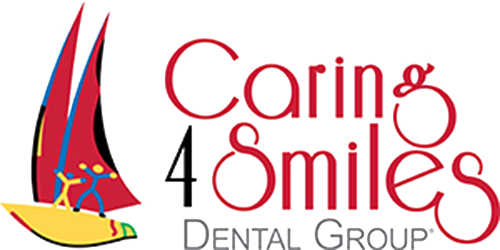Breathing through the mouth instead of the nose may seem like an innocuous habit. However, in children, mouth breathing can prevent the palate of the mouth from growing to the proper size. This is because the tongue plays an integral role in helping the palate to expand. The tongue should be positioned on the roof of the mouth most of the time. When children breathe through their mouths, the tongue is not pressing on the palate, stunting growth. If the palate does not grow large enough to accommodate the teeth, children are prone to developing crooked teeth. Read on to learn about the link between mouth breathing, crooked teeth, and other potential health problems.
Dental Problems That May Be Caused by Mouth Breathing
Problems with the size of the jaw, that may be caused by mouth breathing can lead to several poor oral health outcomes including:
- Difficulty swallowing
- Changes in speech including the development of a lisp
- Jaw pain
- Problems with joints in the jaw
- Bite problems (overbite, underbite, open bite, crossbite)
- Increased risk of tooth decay, gum disease, and periodontal disease
- Gummy smile
- Narrow smile
- Large tonsils
- Facial deformities
- Longer jaws/longer lower face (Long Face Syndrome)
- Broken or worn down teeth
- Receding chin
Other Problems Linked to Mouth Breathing
Mouth breathing can also put children at risk of developing other health problems. These may include
- Delayed growth
- Inability to concentrate
- Poor academic performance
- Sleep disorders
- Decreased cognitive function
- Poor posture
If you suspect your child is mouth breathing, it is important to seek treatment from a child-friendly dentist as soon as possible.
Why Do Children Breathe Through Their Mouth Instead of Their Nose?
The primary reason that children breathe through their mouth is because of nasal congestion. The nasal passage is most often blocked due to a cold, allergies, or in some cases, swollen tonsils. Other reasons children may develop the habit of breathing through their nose may be linked to thumb-sucking or prolonged use of a pacifier. Children who have sleep apnea are also more likely to breathe through their mouths, rather than their noses.
Symptoms of Mouth Breathing While Sleeping
The best way to determine if your child is mouth breathing while asleep is to monitor them when they are sleeping. If they are snoring, or if their mouth is open, they are likely breathing at least partly through their mouth. Other symptoms can include:
- Dry, cracked lips
- Dry mouths
- Drooling onto the pillow
- Hoarseness
- Bad breath
- Frequent respiratory infections
- Stopping breathing for short intervals (sleep apnea)
- Dark circles under the eyes
- Open mouth, when awake
If you suspect your child is breathing through their mouth, talk with your pediatric dentist. They may be able to confirm suspicions and work with you on treatment, to ensure your child’s jaw develops properly.
Are Treatments Available to Correct Mouth Breathing?
Treatments for mouth breathing performed at our practice using Myofunctional appliances to correct improper growth and development of the jaws. Additional treatments may range from medications such as decongestants to open the nasal airway, to oral appliances that can expand the palate, to specialized exercises and therapy to retrain children to breathe through their nose.
Schedule a Dental Exam for Your Child in Auckland
If you’re concerned that your child is breathing through their mouth, schedule a consultation with Caring 4 Smiles Dental Group. Our team provides comprehensive dental care to patients of all ages and works as an integral member of your child’s overall health team, to ensure the healthy development of their teeth, jaw, and gums. Contact us today to schedule an appointment by calling 09 631 5416.

